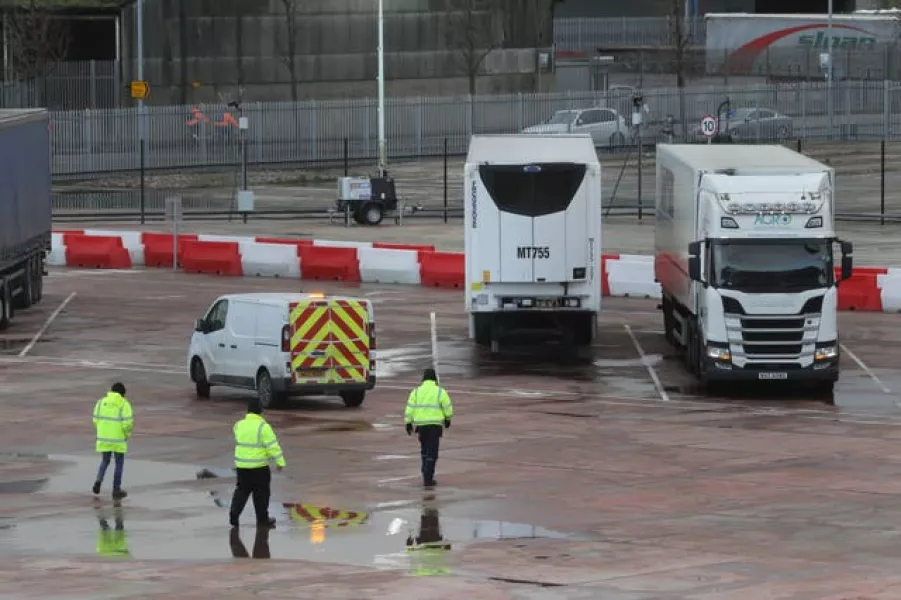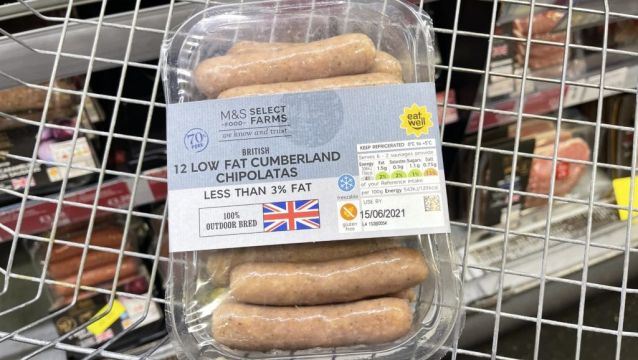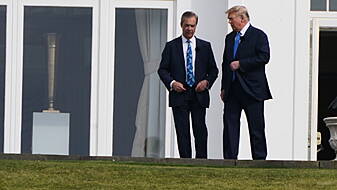As the EU prepares to table fresh proposals to address issues with Brexit’s Northern Ireland Protocol, the UK government has warned Brussels that reforms must include the removal of an oversight role for European judges.
It is the latest twist in a long-running political drama over the most contentious element of the withdrawal deal.
Here are answers to some main questions about the protocol.
What is the protocol?
An arrangement governing trade across the Irish Sea post-Brexit. Negotiated between the UK and EU as part of the Withdrawal Agreement, it was how both sides overcame the main logjam in the Brexit divorce talks — the Irish land Border.
To avoid disrupting cross-Border trade and a return of checkpoints along the politically sensitive frontier, London and Brussels essentially agreed to move new regulatory and customs processes to the Irish Sea.
That meant checks on trade between Britain and Northern Ireland, rather than on goods moving North and South within the island of Ireland.
Products shipped from Northern Ireland to Britain are largely unaffected by the protocol.
The red tape instead applies on movement in the other direction.
Since December 31st, a range of regulatory animal and plant safety checks have been in operation, including physical inspections for a proportion of freight arriving at ports in Northern Ireland.
Customs declarations are also required for incoming commercial goods.

How does the protocol work?
While the rest of the UK has left, Northern Ireland has remained in the EU single market for goods.
The region also applies EU customs rules at its ports, even though it is still part of the UK customs territory.
The protocol also sees Northern Ireland follow certain EU rules on state aid and VAT on goods.
Is the protocol fully operational?
No. Late last year the UK and EU agreed a range of grace periods designed to reduce the level of Brexit bureaucracy in the initial months of operation.
While a range of new checks and processes have been applied since January, those would be dwarfed in scale by the volume of red tape anticipated if the exemption periods ever lapse.
Northern Ireland’s chief vet has warned that if the grace period limiting the checks on supermarket agri-food goods was to end, the region would have to process the same number of vet-approved export health certificates as the entire EU does in total each year.
Stormont’s Minister for Health has also warned about potential for medicine shortages if new rules come into effect that restrict Northern Ireland’s ability to access supplies from Britain.
Apart from the 12-month exemption on medicines, most of the other grace periods should have already lapsed under an original timetable agreed by the EU and UK last year.
However, the political discord over the protocol has seen those exemptions extended several times, on occasion with EU agreement but mostly as a result of unilateral action by the UK.
In the latest UK solo run, the government declared an indefinite extension of all the exemptions while it sought to secure permanent changes to the protocol.

So what is the so-called ‘sausage war’?
A term used by some to exemplify, and simplify, the debate over the protocol.
It relates to just one aspect of single market rules that apply to Northern Ireland under the arrangements — the prohibition on chilled meats.
Under EU rules, the import of such products from third countries is banned. That means Northern Ireland faces the prospect of being unable to import sausages from Britain and other chilled meats on the prohibition list.
The ban has not come into effect, as trade of chilled meats is covered by one of the various grace periods that the UK has unilaterally extended indefinitely.
However, it is already a challenge to find British sausages on shelves in Northern Ireland, as many retailers have adjusted their supply chains in anticipation of the ban.
Why the focus on the European Court of Justice (ECJ)?
Under the terms of the protocol — agreed by the UK and EU in 2019 — the ECJ would be the final arbitrator on any future disputes between the UK and EU on the operation of the protocol.
In its July Command Paper on the protocol, the UK said it was time to “normalise” this oversight arrangement and replace it with an international arbitration model.
The British government said it only agreed to an ECJ role in the protocol due to the “very specific circumstances of that negotiation” as the UK pressed to get a Brexit deal done.
The ECJ issue has not featured significantly in the intense public and political debate over the protocol in Northern Ireland.
For instance, it is not mentioned explicitly in any of the seven tests the DUP has set out to judge any proposed changes to the arrangements.
The perceived lack of focus on the issue to date has led critics of the government to accuse it of introducing a new “red line” just as it appears the EU is set to move on practical problems causing everyday trading friction.
Sinn Féin has portrayed it as Brexit minister Lord Frost throwing a “dead cat” on the negotiating table.

Who is unhappy about the protocol and why?
Businesses who move goods from Britain to Northern Ireland have been saddled with added costs and reams of new red tape.
There has undoubtedly been disruption, as many traders have encountered problems shipping goods across the Irish Sea.
In the early weeks of 2021, this was evidenced by depleted supermarket shelves in Northern Ireland. While the bureaucracy has continued to hinder trade since, many businesses have adjusted and adapted their processes to try to minimise the impact.
Politically, unionists and loyalists are furious from a constitutional perspective.
They believe the arrangements have driven a wedge between Northern Ireland and the rest of the UK, with the protocol forcing an economic reorientation with the Irish Republic.
Unionist politicians have demanded that the UK government intervenes to radically redraw the protocol or ditch it completely.
They have called on the British prime minister to trigger a mechanism within the protocol — Article 16 — to unilaterally suspend aspects of its operation in order to enter fresh negotiations with the EU on the problems.
The protocol has undoubtedly been a contributory factor to the flux that has been witnessed within political unionism since the turn of the year.
This has been exemplified by the chaos that engulfed the DUP over the summer, when two leaders, Arlene Foster and then Edwin Poots, were ousted in successive internal revolts.
Current DUP leader Sir Jeffrey Donaldson has threatened to collapse the power-sharing institutions at Stormont within weeks if major changes to the protocol are not secured.
Away from the political sphere, simmering discontent within the loyalist community spilled over in April into street violence, with the protocol a significant factor in rioting that broke out in various locations across Northern Ireland.
However, fear of further disorder around the summer Protestant loyal order parading season did not materialise.
With Boris Johnson having previously pledged never to put economic barriers in the Irish Sea, unionists and loyalists view the protocol as a “betrayal” of the Brexit they wanted.
They feel the whole of the UK has not left the EU on the same terms, with Northern Ireland left behind, partially trapped within European structures.
All this is playing out in a year in which Northern Ireland marks the centenary of its foundation and as republicans continue to press for a referendum on Irish unity.
What about the other main parties in Northern Ireland?
Sinn Féin, the SDLP and Alliance were all opposed to Brexit. Those parties insist the problems being experienced in Northern Ireland are the outworking of Brexit, rather than the protocol itself.
While acknowledging that issues with the protocol need to be addressed, they oppose any move to bin the arrangements entirely.
They also highlight the potential benefits of the protocol, in particular the unique status it gives traders in Northern Ireland to sell in both the UK internal market and EU single market without restriction.







